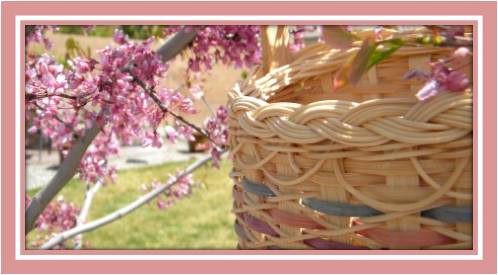How are you all doing today? It is cloudy yet comfortable here and I've got the windows open which I love. It is a great day for weaving.
Today I wanted to give you some basic basket weaving terminology. You may hear me use words in my videos and see some written on my blog that are unfamiliar, so here is a definition of some of them. These definitions are for basic baskets. There are always basket patterns that break the rules and do something different, but this is for most standard basket patterns. There are many more terms and I will cover some of them in future posts. This will just get you started.
Baskets of Blessings,
Nancy
Ribs--The skeleton frame in a ribbed basket that weavers are woven on.
Upsetting the Basket--This is when the base is woven and you bend up the stakes or spokes so that you may begin working on the sides of your basket.
Cut and Tuck or Cutting and Tucking--When finished weaving the sides, you cut the stakes or spokes that are on the inside of the basket flush with your top row of weaving. The stakes or spokes that are on the outside of the basket get folded to the inside and tucked behind a weaver to hide the ends.
Basket Hairs--The splintery looking things on the rough (wrong) side of reed. These are cut or singed off when the basket is completed.
Rim Row--The top row of weaving. This is typically hidden under the rim.
Rim--Typically 2 pieces of reed that are slightly wider than the rim row. These pieces sandwich and cover the rim row and are placed even with the bottom edge of the rim row.
Rim Filler--Something that goes on top of the rim row and is sandwiched between the two rim pieces. Often this is seagrass or round reed.
Lashing--This is the material that holds the rim and rim filler in place.
Shaping--Using your weaver to make the spokes or stakes flare out or pull in.






1 comment:
Hey, I noticed you are a follower on my blog. Love to make baskets--haven't done it in a while. Great fun.
Love your stuff!!
Post a Comment